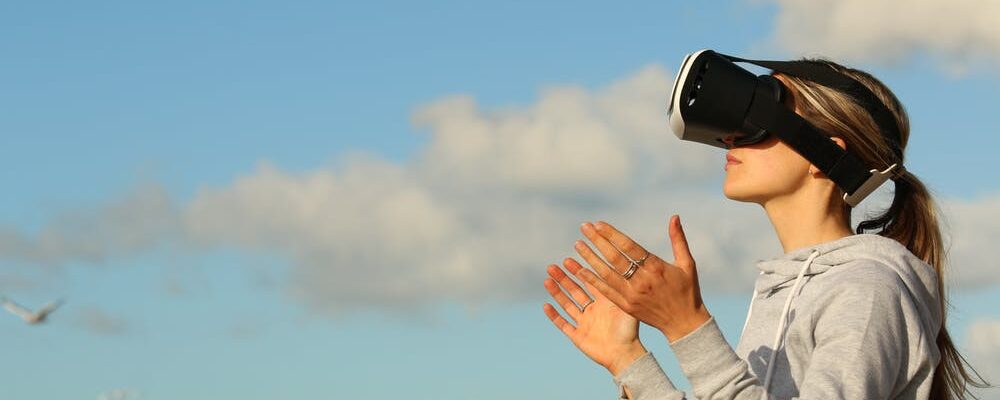The term ‘metaverse’ is easily the technology industry’s newest, most popular buzzword. Tech giants utilize the word to describe their latest ventures into cyberspace, and marketing professionals are using it to entice curious customers.
The online Oxford English Dictionary defines the metaverse as “a virtual-reality space in which users can interact with a computer-generated environment and other users.” If you want to learn more about the basics of the metaverse, check out this blog.
A simple google search for the metaverse will return over 59 million results, most of which are articles, news stories, and announcements that were made extremely recently- we’re talking less than a year.
This graph from Google Trends shows the popularity of the metaverse in terms of how many Google searches there have been on the topic. You can see the distinct moment that the general population began to search about the metaverse. In fact, you can see that just after October of 2021, Google searches for the term ‘metaverse’ peaked, and it has since stayed pretty relevant.

You can link the sudden interest in the metaverse directly back to Mark Zuckerberg’s announcement for the rebranding of Facebook Inc in October of 2021. The company’s new name is Meta, which is an immediate reference to the metaverse itself. According to the Associated Press, this rebrand reflected the company’s new initiative to develop the “surround-yourself technology” now known as the metaverse.
Zuckerberg’s announcement was paired with a 10-minute video posted on CNET’s YouTube channel. This video explains everything from the meaning behind the company’s name change to the metaverse itself. It also features many examples of what the metaverse may look like in the near future, with animated avatars acting as user personas in the virtual world.

What does this have to do with the event industry?
Although the metaverse isn’t necessarily ready for mass user consumption, that doesn’t mean we haven’t taken strides towards incorporating virtual reality into our everyday lives.
In recent years, the event industry has become one of the most experimental and interesting spaces for upcoming technology. With the huge increase that virtual events have seen, it’s really no surprise that virtual reality has already been incorporated into many digital experiences.
Decentraland, a metaverse platform, has announced a high-end fashion show that will be hosted through virtual reality in March. The four-day event is expected to be just as involved as many fashion-week shows are with pop-up shops, networking events, and afterparties.
This interest in fashion within the metaverse isn’t a new idea. Gucci launched its “Garden experience” through the online videogame Roblox. Although Roblox isn’t necessarily a virtual reality game, it has the same animated avatars that the metaverse tends to have.
Alongside the interest in digital fashion, there has also been a peak in online museums and interactive exhibits. In September, Jumbo created a platform for Quills Fest, an immersive digital event in which attendees had the opportunity to visit an art museum through virtual reality.
There have also been weddings, large-scale sporting events, and technology expos, all hosted within the metaverse.
The future of the metaverse is starting to become more clear. People are interested in this new form of interacting with one another and technology. As more and more tech giants embrace the metaverse, we’ll likely start seeing a lot more opportunities to interact virtually in our day-to-day lives.
The trends show that the metaverse is already becoming a serious contender for in-person events. After all, many of the things that people miss about physical events can be remedied by virtual reality. The interactivity and excitement of something new are important factors to keep in mind when considering the possibility of including the metaverse in your upcoming event.

